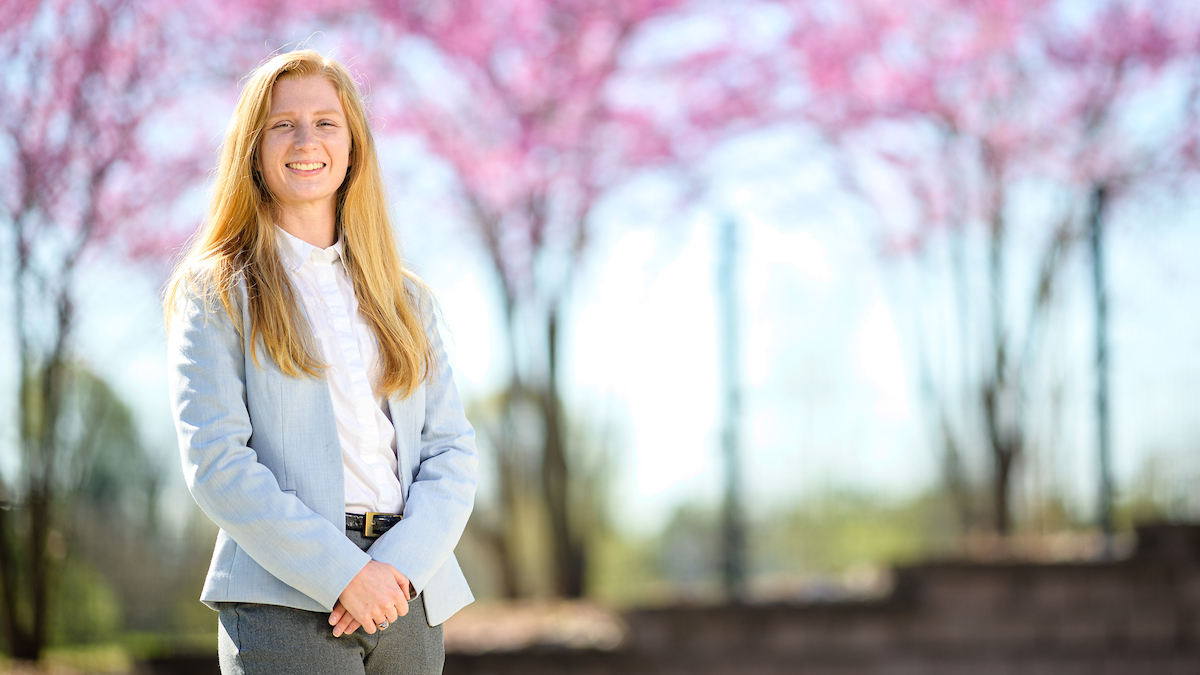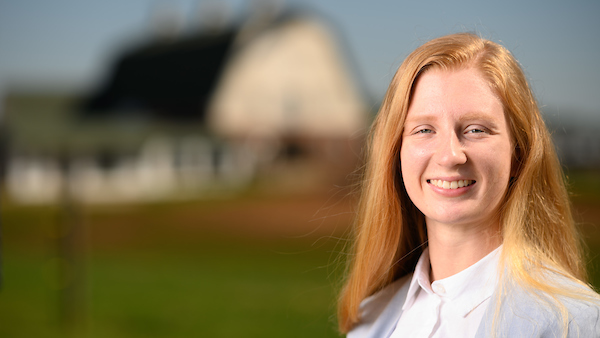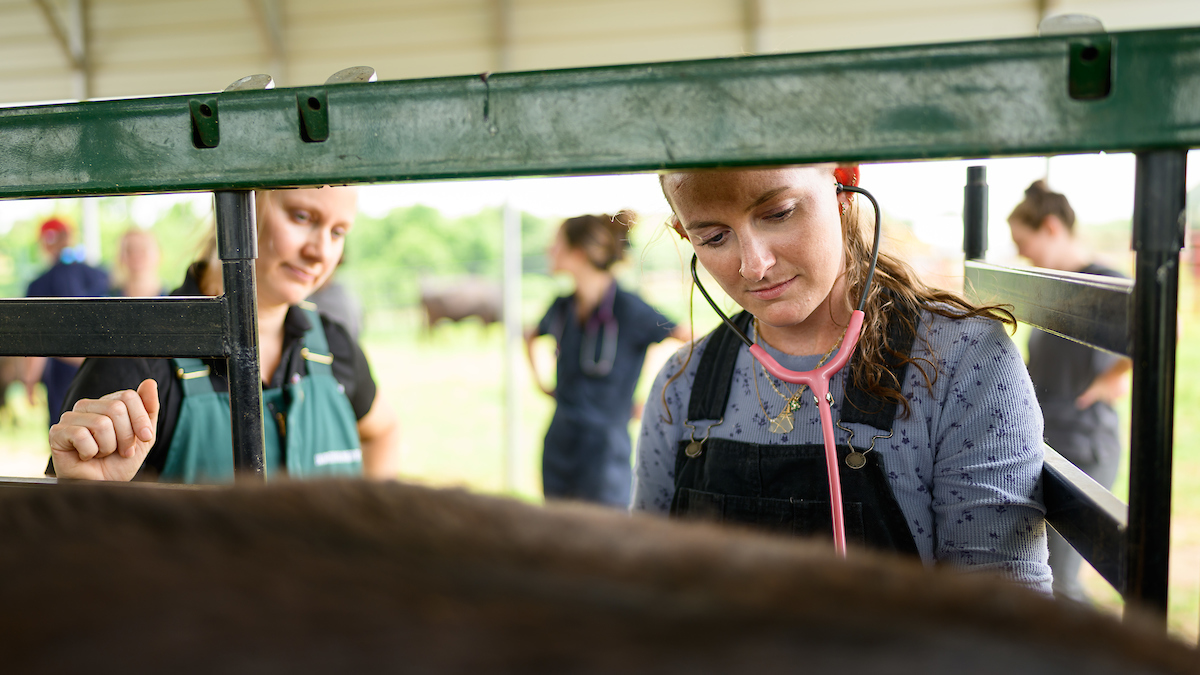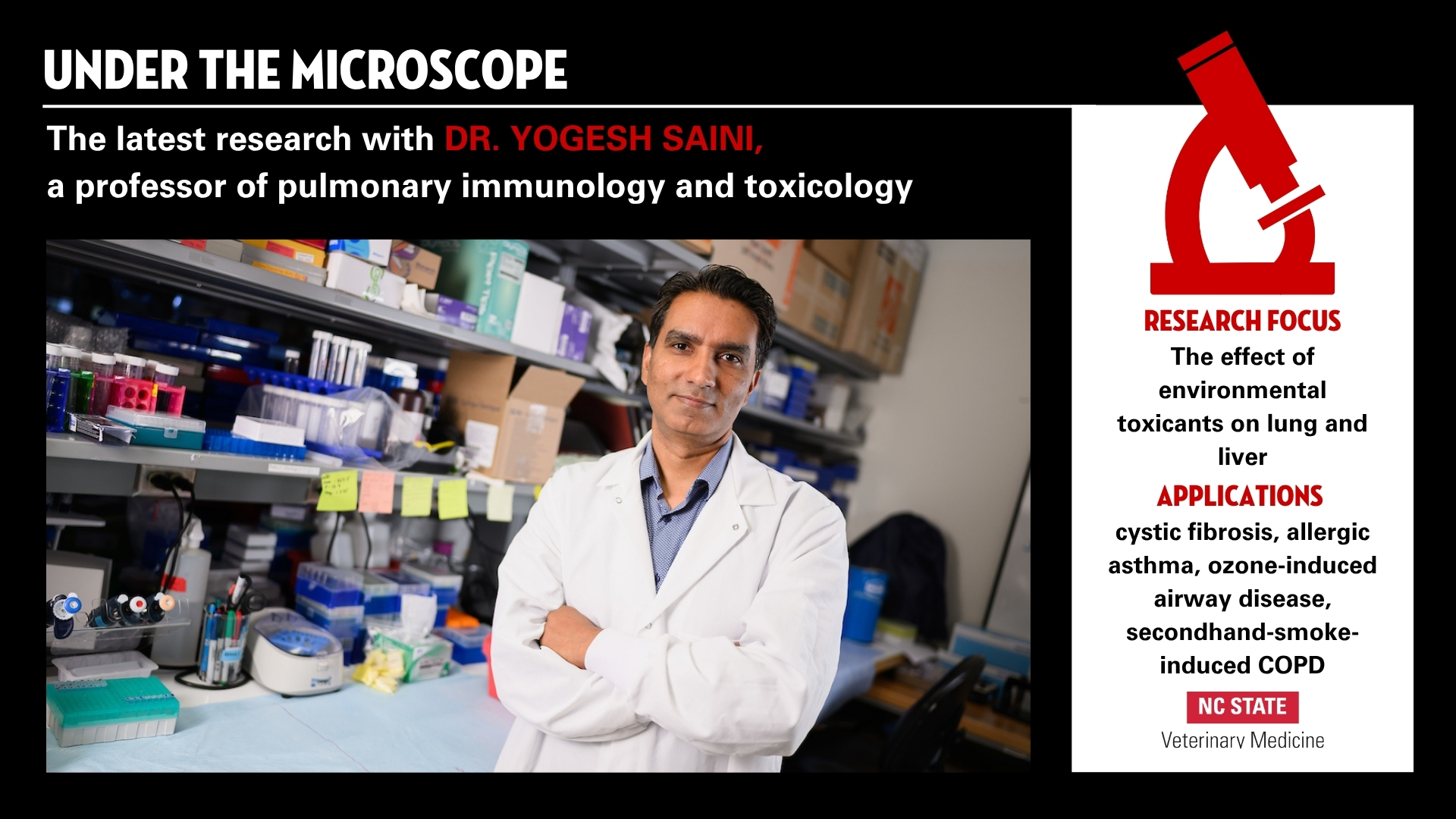Focus on Career Earns NC State Vet Med Student Military Scholarship

Chalise Brown marches to a different drummer.
“I wanted to take an atypical path,” says the member of the NC State College of Veterinary Medicine class of 2024. “I wanted to do something different.”
That approach has earned Brown a United States Army Health Professions Scholarship.
Brown will receive a full-tuition scholarship to complete her DVM, along with funding for academic fees and a monthly stipend of more than $2,000. She was recently commissioned as a second lieutenant in the U.S. Army Veterinary Corps.
The Veterinary Corps offers a wide variety of professional opportunities to its members, ranging from treating the pets of soldiers and their families to fighting infectious disease around the world and developing vaccines.
After graduation she will serve active duty as a captain. Several DVM students have received the scholarship, including the class of 2019’s Ashley Butler and the class of 2021’s Thomas Burdette and Sam Tucker. Brown says her interest is increasingly in the direction of zoonotic diseases and global health, but it’s too soon to know what her post-graduation duties will entail.
Brown grew up in Citrus County, on the Gulf Coast of Florida. Although her family didn’t live on a farm, in middle school she joined the Future Farmers of America, much to the surprise of her parents, but they were supportive. She had become interested in farm animals around the age of 12.

“My 90-pound self wanted to raise beef show cattle,” she explains.
As her interest deepened, Brown had the good fortune to attend a high school with a land lab -— facilities and an instructional program that allowed students to raise livestock and continue learning about animal agriculture.
“This was an invaluable resource to me,” she says. “It fostered an interest in animal and resource sciences.”
She became aware of the global issues surrounding food supply, the significance of zoonotic diseases impacting both humans and animals, and the One Health concept — the complex interrelationship of the health of the ecosystem, animals and humans.
She was investigating possible veterinary scholarships before she was even in college and discovered the U.S. Army Health Professions Scholarship while doing an online search.
Ultimately, she went on to the University of Florida, majoring in animal sciences. While an undergraduate, she met another student who was already in the military health professions program. “I learned more about the public health role the military plays in developing countries, and that inspired me, she said. “That became my goal. And I felt the call to serve my country.”
The University of Florida also has a College of Veterinary Medicine, and Brown assumed that’s where she would end up going.
She still appreciates the role UF played in helping her to define her future. Still, she also applied to NC State, and after a weekend visit to campus she was hooked.
“I loved the facilities, the environment and the people I met,” she says. “It felt right — truly a great fit.”
She was especially impressed by the food animal medicine program and the diverse species she encountered on campus.
I learned more about the public health role the military plays in developing countries, and that inspired me. That became my goal. I felt the call to serve my country.
She was both surprised and delighted to be accepted, and despite the challenges of beginning her studies under the conditions imposed by COVID-19 restrictions, she is pleased with her choice.
“Everyone is doing their best,” she says. “The professors really care about student success, and they’re very accessible. It hasn’t been easy for them, either.”
She also is grateful to her parents for prioritizing the value of education in her life. Brown is a first-generation college student but there was never any doubt that she would seek higher education. “I couldn’t have done this without them.”
Brown is also grateful to the Army for making the pursuit of her atypical path possible. “I thought that cost would determine my choices, but it didn’t,” she says. “The cost of vet school is daunting, and the psychological pressures of student debt are minimized now. And it’s good to know that you’ll have a job after college.”
~Steve Volstad/NC State Veterinary Medicine
- Categories:


